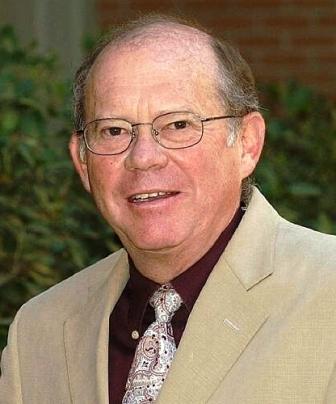February 2011

NOTES FROM THE ACADEMIC SENATE CHAIR
DANIEL SIMMONS
Dear Colleagues,
As you all have undoubtedly heard, the Governor’s 2011-12 higher education budget includes a $500M cut to UC. This represents a 16.4% cut in general funds, and means that for the first time in our history, revenue from tuition will exceed revenue provided by the state. UC’s $500M cut is compounded by $300M in mandatory cost increases, including employer contributions to UCRP, and the public’s expectation that UC will continue to accept all eligible students. In addition, the Governor’s budget assumes passage of a June ballot measure to extend temporary tax increases by five years. The temporary tax increase represents half of the Governor’s proposed solutions to state budget deficits. Failure of the tax initiative would force the state to develop another plan that, according to Governor Brown, would include additional cuts to higher education.
2011 continues to be an extraordinarily challenging year. Make no mistake, without adequate revenue the University will not be able to sustain its work at the level we have come to expect. The changes will affect the size of the University, our ability to invest in new buildings and maintain our existing infrastructure, and our ability to recruit and retain the best faculty, staff, and graduate students. I fear that we will not be able to implement a budget cut of this magnitude without a huge impact on the quality of our academic mission.
I have to be optimistic when I think about the scale of the problems facing us, or I would never be able to get out of bed in the morning. The cuts require us to engage in serious thought about making fundamental changes in the way we operate. As we react to these cuts, we must remember the values that built what is the greatest public university in the world. First and foremost, we are an institution of public higher education. That means we must remain committed to actions and policies that enhance the public good. UC was founded to bring education to the diverse population of the state and to spearhead the economic development that has resulted in the state’s extraordinary success. UC, along with CSU and the CCCs, educates the workforce that drives the state’s economic engine. We also educate the people who will create enterprises that employ that workforce. And of crucial importance, we educate the creative and critical thinkers who will produce the next generation of knowledge and redesign that engine of growth.
From the Senate’s standpoint, we protect the public good by protecting the teaching and research mission of the University. UC provides access to a high quality education at a research university. The research component is the backbone of what we teach. Our commitment to research and teaching depends on sustaining a faculty made up of leading scholars and teachers.
Our commitment to access means the doors must remain open to the best of California’s students from all parts of the state and who reflect California’s diversity in the broadest sense of that term. We have two main sources of financial support for the University’s educational mission: state appropriations and tuition. As the state withdraws, tuition rises. We contribute to the public good with a strong, multi-campus system that serves all regions of California. We must also remain committed to competitive graduate programs as a critical part of our research mission.
As campuses plan how to absorb the cuts, I have asked the divisions to share their plans with the Academic Council. In December, the UCLA division chair briefed Council on the UCLA College of Letters and Sciences’ “Challenge 45” initiative. The College asked departments to examine whether they could reduce upper division major requirements to 45 units to reduce the teaching workload to match the new reality of fewer faculty, while providing students greater flexibility in choosing courses without harming quality. The work at UCLA is impressive and I recommend that each campus consider a similar activity.
One of the recommendations in the Commission on the Future’s final report asks chancellors to include budget information in materials provided during program reviews, so that reviewers can consider the opportunity costs of starting new programs or enhancing existing programs. This information will enable Senate committees to provide informed opinions on the trade-offs. CCGA and UCEP will work with divisional executive committees and planning and budget committees to develop specific budget questions that would be useful to include in program reviews.
Immediate Past Senate Chair Harry Powell has been leading a Senate Special Committee on a Plan for UC, composed of faculty who served on the Commission work groups. The Special Committee has submitted recommendations to the Academic Council. Council charged a follow-up Task Force constituted from chairs of three key standing committees and four divisions that will determine the fiscal impact of the Special Committee’s recommendations and develop implementation plans based on data to be supplied by UCOP. More than anything else, UC needs a plan to address the present crisis—specifically, how we can continue to deliver excellent research, teaching, and public service with less money. The Task Force will work closely with the Academic Council and standing committees to address such issues as the size of the faculty and student body, where growth should occur, the ratio of graduates to undergraduates, and the role of lecturers.
As dire as it is, the budget crisis is an opportunity for all of us to step forward to design a future for the University of California in service to the people of California. I invite you to contact me with questions, concerns, and especially suggestions.
Fiat Lux, Dan
